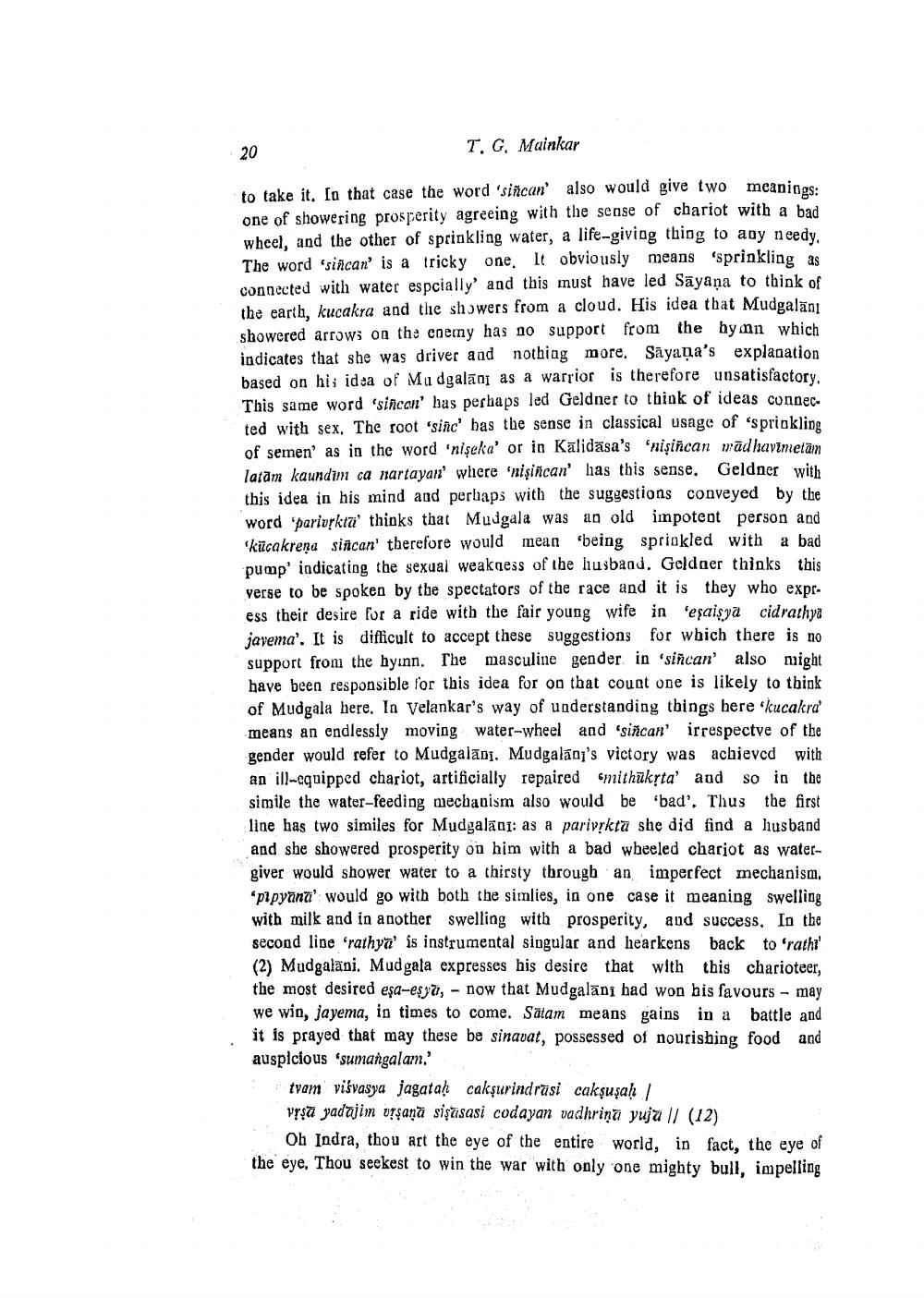________________
20
T. G, Mainkar
to take it. In that case the word 'sincan' also would give two meanings: one of showering prosperity agreeing with the sease of chariot with a bad wheel, and the other of sprinkling water, a life-giving thing to any needy, The word "sincan' is a tricky one. It obviously means 'sprinkling as connected with water espcially' and this must have led Sayana to think of the earth, kucakra and the showers from a cloud. His idea that Mudgalänı showered arrows on the chemy has no support from the hymn which indicates that she was driver and nothing more. Sāyana's explanation based on his idea of Mudgalan as a warrior is therefore unsatisfactory. This same word 'sincan' has perhaps led Geldner to think of ideas connected with sex. The root 'sific' has the sense in classical usage of 'sprinkling of semen' as in the word 'nişeka' or in Kalidasa's 'nişincan wadhavimetam latām kaundim ca nartayan' where nişincan' has this sense. Geldner with this idea in his mind and perhaps with the suggestions conveyed by the word 'pariurkta' thinks that Mudgala was an old impoteot person and kücakrena sifcan' therefore would mean being spriokled with a bad pump' indicating the sexual weakness of the husband, Guldaer thinks this verse to be spoken by the spectators of the race and it is they who expr. ess their desire for a ride with the fair young wife in fesaisya cidrathya javema'. It is difficult to accept these suggestions for which there is no support from the hyinn. The masculine gender in 'sincan also might have been responsible for this idea for on that count one is likely to think of Mudgala here. In velankar's way of understanding things here kucakra means an endlessly moving water-wheel and 'sincan' irrespectve of the gender would refer to Mudgalānī. Mudgalãoj's victory was achieved with an ill-equipped chariot, artificially repaired Smithūksta' and so in the simile the water-feeding mechanism also would be 'bad'. Thus the first line has two similes for Mudgalāni: as a parivrkta she did find a husband and she showered prosperity on him with a bad wheeled chariot as watergiver would shower water to a thirsty through an imperfect mechanism *pipyana' would go with both the simlies, in one case it meaning swelling with milk and in another swelling with prosperity, and success. In the second line "rathya' is instrumental singular and hearkens back to 'rathi' (2) Mudgalani. Mudgala expresses his desire that with this charioteer, the most desired eșa-esya, - now that Mudgalān; had won his favours - may we win, jayema, in times to come. Satam means gains in a battle and it is prayed that may these be sinavat, possessed of nourishing food and auspicious 'sumangalam.'
tvam visvasya jagatah cakşurindrüsi cakşuşah / vrya yadajim trẸana siyasasi codayan vadhrina yuja || (12)
Oh Indra, thou art the eye of the entire world, in fact, the eye of the eye. Thou seekest to win the war with only one mighty bull, impelling




